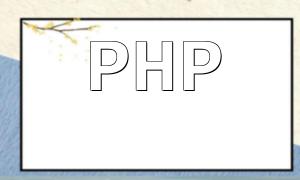In PHP development, using functions securely is crucial. Improper usage can lead to vulnerabilities such as SQL injection, cross-site scripting (XSS), or buffer overflow. Understanding these risks and applying proper protective measures can effectively safeguard applications and user data.
When using PHP functions, common security risks include:
To reduce these security risks, consider the following measures:
Escape Functions: Use htmlspecialchars(), htmlentities(), or mysqli_real_escape_string() to escape special characters when sending user input to database queries or HTML output.
Parameterized Queries: Use placeholders (?) instead of dynamic data in queries, ensuring the database engine properly handles the input.
Input Filtering: Use filter_input() or filter_var() to validate and filter user input, preventing harmful characters.
Use eval() Cautiously: eval() executes user-provided code. Use it only when absolutely necessary and carefully validate the input.
Suppose we want to retrieve a username from the database based on a user ID:
function get_username($user_id) {
$query = "SELECT username FROM users WHERE user_id='" . mysqli_real_escape_string($conn, $user_id) . "'";
$result = mysqli_query($conn, $query);
if ($result) {
$row = mysqli_fetch_assoc($result);
return $row['username'];
} else {
return null;
}
}In this example, mysqli_real_escape_string() is used to escape the user input, and the query is constructed using placeholders to prevent SQL injection effectively.
Following these preventive measures can significantly reduce security risks when using PHP functions. Always prioritize security and carefully review all potential input points to protect your applications and user data.









